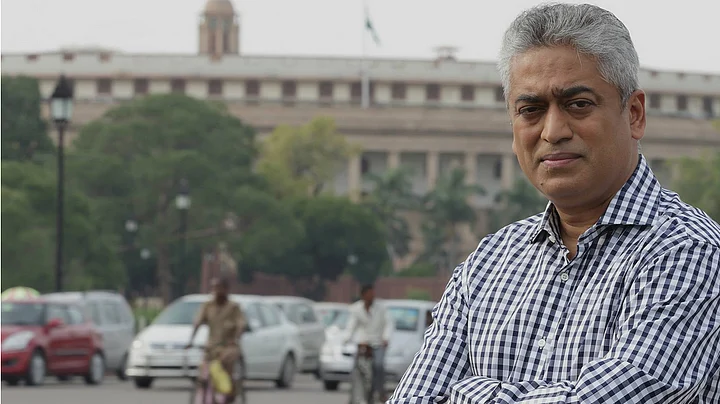Eminent TV journalist Rajdeep Sardesai found himself at the centre of an onslaught of personal attacks over the weekend, after he expressed his views on ‘Hindu’ and ‘Islamic’ terror on his Twitter handle.
On Friday night, Sardesai left netizens with this profound thought:
He also followed it up with another one:
A Barrage of Angry Criticism
The responses were immediate and not altogether pleasant. While one scathingly pronounced him to be taking “money from ISI”, another scoffed that he was “dragging Hindus” into this, merely to safeguard his “secular tag”.
Several called him a “traitor”, harping on the inevitable chorus that he “should be sent to Pakistan”, while many volunteered the derogatory line that he was a Congress sycophant.
Sardesai’s Ripostes to the “Bhakt Gang”
Sardesai took all the criticism head-on and gave back his own repartees. He particularly singled out the “bhakt” (pro-Hindutva) gang who were attacking him on Twitter.
He received a death threat from a user called @Jitu345, who had tweeted “aapko ek din ek Hindu terrorist hi supurd-e-khak kargea” (You will one day be buried by a Hindu terrorist). Sardesai pleasantly commented on the ludicrousness of receving a death threat on Sunday:
He also expressed surprise and amusement at the twitterati attacking him on Friendship Day, suggesting that they should leave the “abuse” for Monday.
Rajnath Singh on “Hindu Terrorism”
Rajdeep’s tweets on Friday came in the wake of Home Minister Rajnath Singh speaking at length in Parliament about the concept of “Hindu terror”. Singh had declared that it was the former UPA government who had coined the term ‘Hindu terrorism’, arguing that there was no such thing and instead one should focus on looking at terror sans religion.
Why Were the Mumbai Rioters not Convicted in 1992-93?: Rajdeep
On Friday, Rajdeep Sardesai also came up with his own video on his blog rajdeepsardesai.net. In the 4-minute video, he strongly questioned the commitment shown by the government in the Yakub Memon hanging – a kind which he rued had not been shown during the Mumbai riots of 1992-93, which eventually led to the blasts.
The 1993 Bombay blast was a direct fallout of the Bombay riots of Dec 1992 and Jan 1993. This is what the Srikrishna Commission which was appointed to look into the violence explicitly states. And as a reporter who covered the riots and the blasts I can say it is 100% true
The fact is 900 people died in the Mumbai riots but only a handful have been convicted. Most of the people involved are scot-free or out on bail which is why we must ask: Are only certain types of crimes could lead to this public anger and outrage that results in the death penalty? Will those who are involved in other forms of mass violence be going to get away?
(At The Quint, we question everything. Play an active role in shaping our journalism by becoming a member today.)
